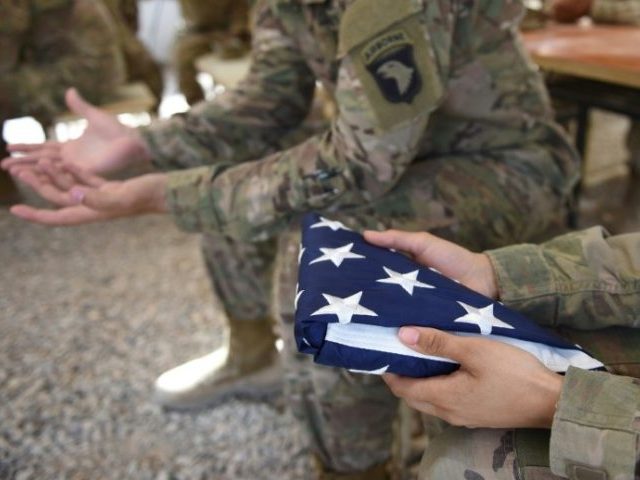Increasing the presence of the U.S. military in Afghanistan could cost Donald Trump support in key states, according to a new study.
The study by Boston University’s Douglas Kriner and the University of Minnesota’s Francis Shen found that communities hardest hit by military casualties in America’s wars in Iraq and Afghanistan swung to Trump in the 2016 election. If Pennsylvania, Michigan, and Wisconsin had suffered “even a modestly lower casualty rate,” all three states would have flipped to Hillary Clinton, Kriner and Shen found.
“If Trump wants to win again in 2020, his electoral fate may well rest on the administration’s approach to the human costs of war,” the authors warned.
Those three states all went to Trump by narrow margins and also suffered a higher number of casualties per resident than other states. The authors controlled for factors such as race, education, income, rural population and even the population of military veterans.
“Even after including all these demographic control variables, the relationship between a county’s casualty rate and Trump’s electoral performance remains positive and statistically significant,” Kriner and Shen wrote.
Trump’s anti-war rhetoric helped him get elected, the study finds. By positioning himself as less hawkish than Hillary Clinton, Trump was able to “connect with voters in communities exhausted by more than 15 years of war.” That may have been “critically important to his narrow electoral victory,” the author’s wrote.
This appears to be one of the key reasons Trump outperformed Romney in some areas. “Trump significantly outperformed Romney in counties that shouldered a disproportionate share of the war burden in Iraq and Afghanistan,” they write.
Now that Trump is president and in control of the U.S. military, voters in areas that suffer casualties may turn their anger against him instead of the establishment politicians.
“If Trump wants to maintain his connection to this part of his base, his foreign policy would do well to be highly sensitive to American combat casualties,” the authors wrote.

COMMENTS
Please let us know if you're having issues with commenting.